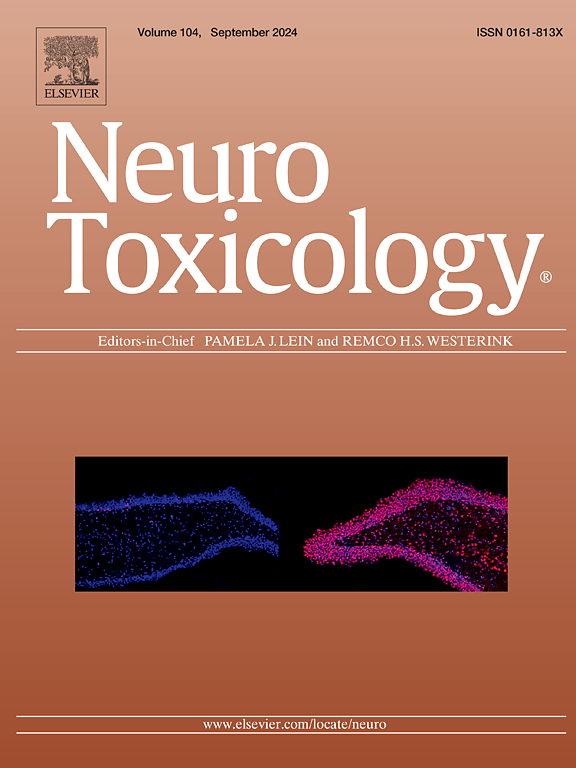Environmental adversity, endoplasmic reticulum stress, and neurogenesis
IF 3.9
3区 医学
Q2 NEUROSCIENCES
引用次数: 0
Abstract
Environmental adversity experienced during the prenatal period can include maternal nutritional deficiency, infectious agents, heavy metals, industrial chemicals, air pollution, medication, alcohol exposure, and substance use, as well as maternal factors such as diabetes. If these adversities occur during certain developmental time windows, they can significantly impact fetal development and have long-lasting neurobehavioral deficits. However, molecular mechanisms underlying the impact of environmental adversity remains unclear. The process by which new neurons form in the brain is neurogenesis. In certain brain regions neurogenesis continues throughout the lifespan and is essential for continued neurodevelopment and good mental health. Appropriate cellular responses to both extrinsic and intrinsic stressors require maintenance of the proteome, which relies on homeostasis of the endoplasmic reticulum (ER). Perturbations of ER homeostasis, such as the depletion of nutrients and disturbances in calcium or redox status, lead to abnormal accumulation of misfolded proteins and induce ER stress, which is monitored by the unfolded protein response (UPR). UPR is an adaptive reaction that restores protein homeostasis or triggers apoptotic cell death. Recent research indicates that ER stress during development can impair neurogenesis. We hypothesize that ER stress-mediated disruption of neurogenesis underlies the neurobehavioral deficits caused by environmental adversity. In this review, we discuss evidence of the impact that environmental adversities have on neurogenesis and the involvement of ER stress. We also discuss crosstalk across ER stress, oxidative stress, autophagy, and neuroinflammation, as well as potential therapeutic strategies that target ER stress/UPR for the treatment of neurobehavioral deficits associated with environmental adversities.
环境逆境,内质网应激和神经发生
产前期间所经历的环境逆境可能包括产妇营养缺乏、传染因子、重金属、工业化学品、空气污染、药物、酒精接触和物质使用,以及糖尿病等产妇因素。如果这些逆境发生在特定的发育时间窗口,它们可以显著影响胎儿发育并造成长期的神经行为缺陷。然而,环境逆境影响的分子机制尚不清楚。新神经元在大脑中形成的过程称为神经发生。在某些大脑区域,神经发生贯穿整个生命周期,对持续的神经发育和良好的心理健康至关重要。细胞对外部和内部应激源的适当反应需要维持蛋白质组,这依赖于内质网(ER)的稳态。内质网稳态的扰动,如营养物质的消耗和钙或氧化还原状态的紊乱,会导致错误折叠蛋白的异常积累,并诱导内质网应激,这是由未折叠蛋白反应(UPR)监测的。UPR是一种适应性反应,可恢复蛋白质稳态或触发凋亡细胞死亡。最近的研究表明,发育过程中的内质网应激会损害神经发生。我们假设内质网应激介导的神经发生破坏是由环境逆境引起的神经行为缺陷的基础。在这篇综述中,我们讨论了环境逆境对神经发生和内质网应激的影响的证据。我们还讨论了内质网应激、氧化应激、自噬和神经炎症之间的串扰,以及针对内质网应激/UPR治疗与环境逆境相关的神经行为缺陷的潜在治疗策略。
本文章由计算机程序翻译,如有差异,请以英文原文为准。
求助全文
约1分钟内获得全文
求助全文
来源期刊

Neurotoxicology
医学-毒理学
CiteScore
6.80
自引率
5.90%
发文量
161
审稿时长
70 days
期刊介绍:
NeuroToxicology specializes in publishing the best peer-reviewed original research papers dealing with the effects of toxic substances on the nervous system of humans and experimental animals of all ages. The Journal emphasizes papers dealing with the neurotoxic effects of environmentally significant chemical hazards, manufactured drugs and naturally occurring compounds.
 求助内容:
求助内容: 应助结果提醒方式:
应助结果提醒方式:


